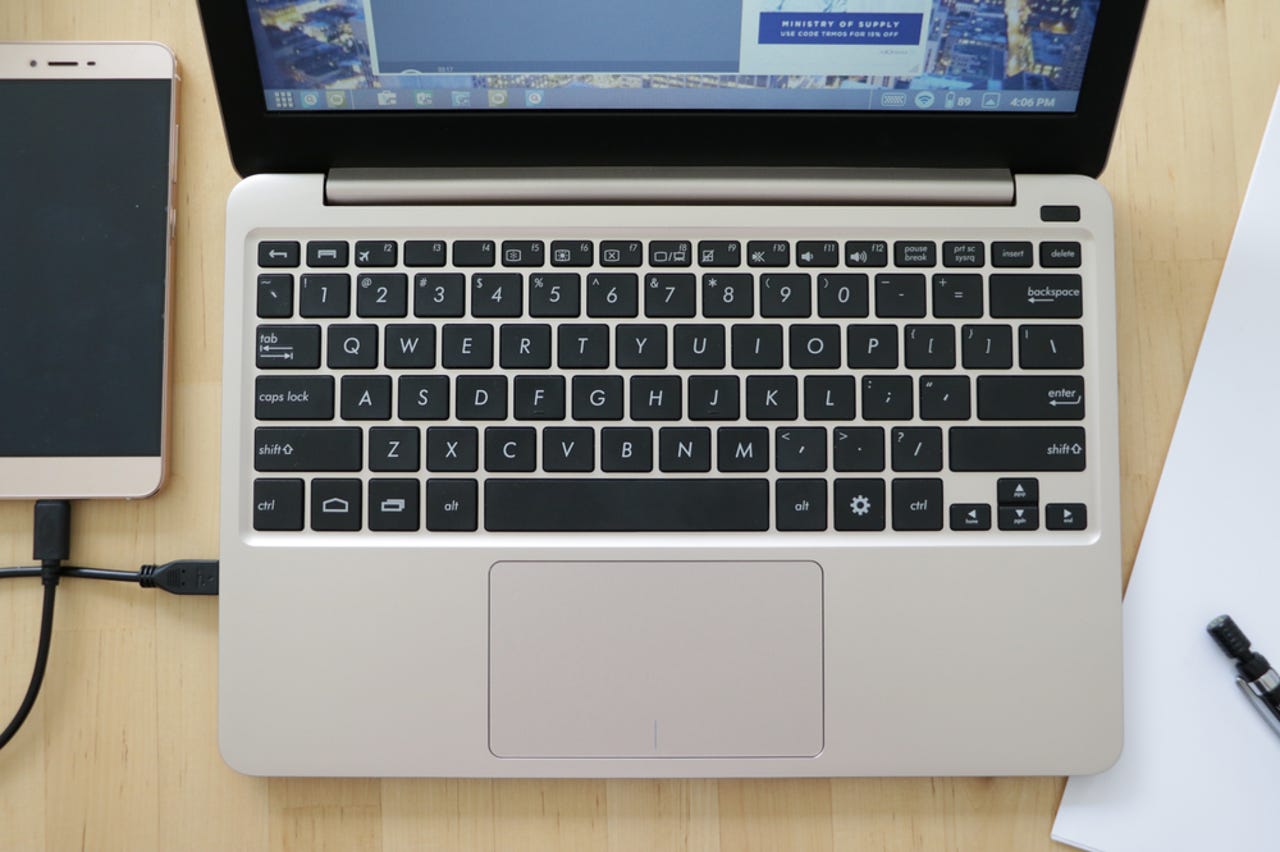The $99 Android laptop: Smartphone-powered Superbook to ship next year after $3m Kickstarter success


For $99, the Superbook will let you use your Android smartphone into a laptop.
A project to create a $99 kit that can turn an Android smartphone into a laptop has secured almost $3m on Kickstarter.
More than 16,000 backers pledged money to support the Andronium Superbook, an 11-inch laptop with a high-definition display and 10 hours of battery life that is powered by a USB- attached Android smartphone.
Andronium wrapped up its Kickstarter campaign on Saturday, having secured $2.95m from 16,732 supporters, making it one of the most-funded computer hardware projects on Kickstarter.
The Superbook features a trackpad, keyboard, an 11.6-inch high definition display, a battery with 10 hours life, as well as Type C USB and Micro USB ports. Since the processing and storage are handled by the attached Android smartphone, the Superbook is able to forego many of the components that would otherwise drive up the cost of a laptop.
All that is needed to get a Superbook up and running is an Android smartphone with the Andronium OS app installed, which is then connected to the laptop shell via USB. Once the two are connected, the smartphone powers the laptop, allowing multiple apps to be used concurrently on an emulated Windows desktop user interface.
Over the course of the campaign, which kicked off in July, the Superbook passed a number of stretch goals that allowed Andronium to commit to a final product with a bigger battery, backlit keys, and an additional option for a 1080p display. Each device will also ship with a carbon fiber skin.
The Superbook also works with a number of other devices other than Android phones, including support for connecting the device to a Raspberry Pi. Alternatively, it can function as a second display for a Microsoft's Surface, a Mac, or a PC stick.
The campaign's success demonstrates an appetite for cheap hardware that can harness the power of a smartphone to deliver a desktop PC experience. Microsoft hoped to capitalise on such demand with Continuum, a Windows 10 feature that enables some phones to behave as a desktop once connected to a larger display. The problem of course is that few own a Windows Phone.
Now the question is whether Andronium can actually deliver on its promise. The company demonstrated its technology at MWC earlier this year, but now, with $3m in backing, it's hiring additional Android engineers to help meet its target of shipping thousands of Superbooks in January and February next year.